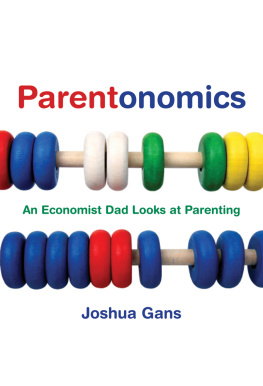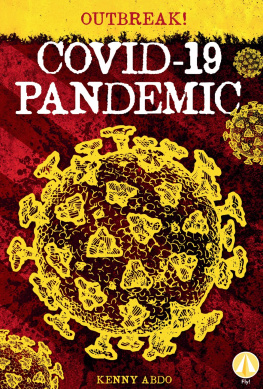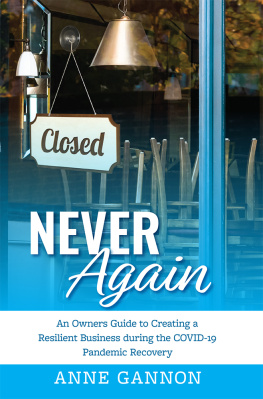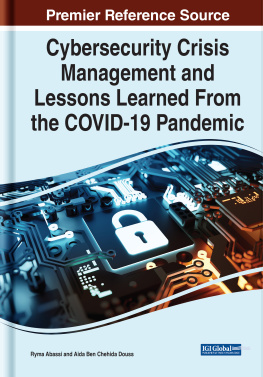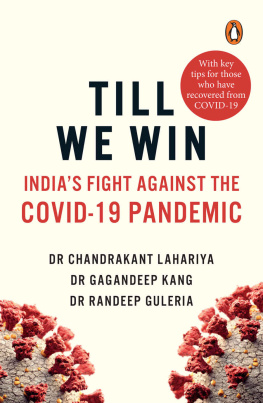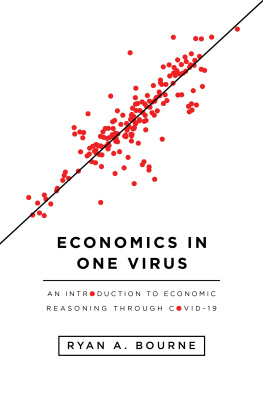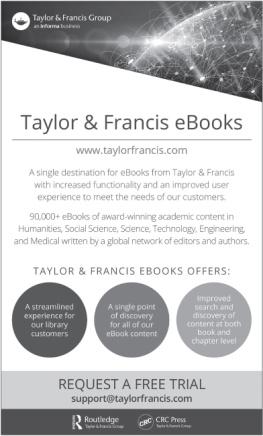Joshua Gans - The Pandemic Information Gap: The Brutal Economics of COVID-19
Here you can read online Joshua Gans - The Pandemic Information Gap: The Brutal Economics of COVID-19 full text of the book (entire story) in english for free. Download pdf and epub, get meaning, cover and reviews about this ebook. year: 2020, publisher: MIT Press, genre: Romance novel. Description of the work, (preface) as well as reviews are available. Best literature library LitArk.com created for fans of good reading and offers a wide selection of genres:
Romance novel
Science fiction
Adventure
Detective
Science
History
Home and family
Prose
Art
Politics
Computer
Non-fiction
Religion
Business
Children
Humor
Choose a favorite category and find really read worthwhile books. Enjoy immersion in the world of imagination, feel the emotions of the characters or learn something new for yourself, make an fascinating discovery.

- Book:The Pandemic Information Gap: The Brutal Economics of COVID-19
- Author:
- Publisher:MIT Press
- Genre:
- Year:2020
- Rating:5 / 5
- Favourites:Add to favourites
- Your mark:
- 100
- 1
- 2
- 3
- 4
- 5
The Pandemic Information Gap: The Brutal Economics of COVID-19: summary, description and annotation
We offer to read an annotation, description, summary or preface (depends on what the author of the book "The Pandemic Information Gap: The Brutal Economics of COVID-19" wrote himself). If you haven't found the necessary information about the book — write in the comments, we will try to find it.
Joshua Gans: author's other books
Who wrote The Pandemic Information Gap: The Brutal Economics of COVID-19? Find out the surname, the name of the author of the book and a list of all author's works by series.
The Pandemic Information Gap: The Brutal Economics of COVID-19 — read online for free the complete book (whole text) full work
Below is the text of the book, divided by pages. System saving the place of the last page read, allows you to conveniently read the book "The Pandemic Information Gap: The Brutal Economics of COVID-19" online for free, without having to search again every time where you left off. Put a bookmark, and you can go to the page where you finished reading at any time.
Font size:
Interval:
Bookmark:
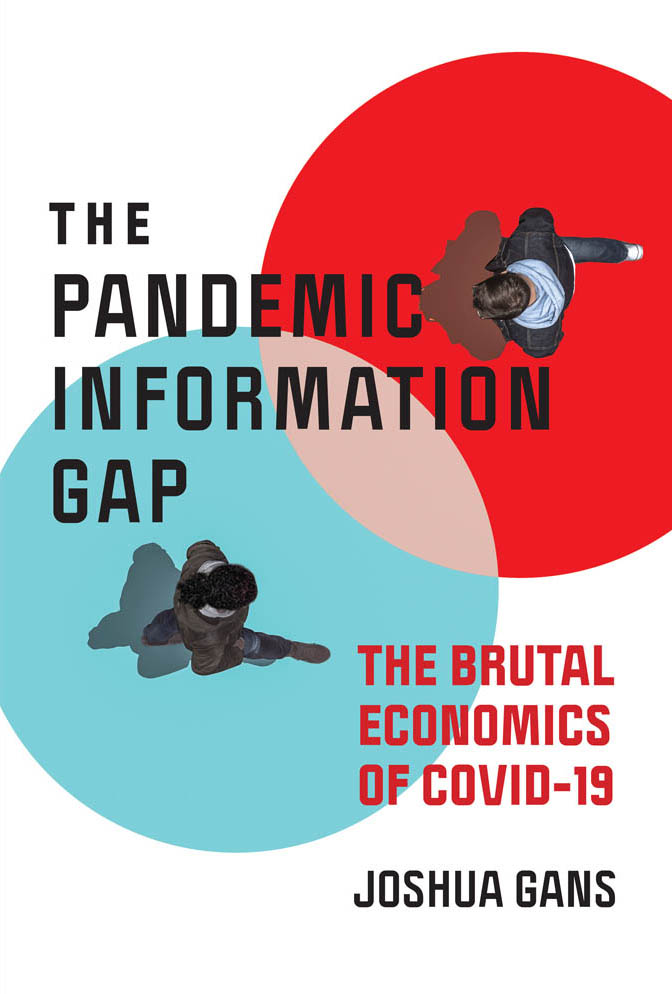
Joshua Gans
The MIT Press
Cambridge, Massachusetts | London, England
2020 Joshua S. Gans
All rights reserved. No part of this book may be reproduced in any form by any electronic or mechanical means (including photocopying, recording, or information storage and retrieval) without permission in writing from the publisher.
Some material included in The Pandemic Information Gap was previously published in the MIT Press eBook Economics in the Age of COVID-19.
Library of Congress Cataloging-in-Publication Data
Names: Gans, Joshua, 1968- author.
Title: The pandemic information gap : the brutal economics of COVID-19 / Joshua Gans.
Description: Cambridge, Massachusetts : The MIT Press, [2020] | Includes bibliographical references.
Identifiers: LCCN 2020028165 | ISBN 9780262539128 (paperback)
Subjects: MESH: Coronavirus Infections--economics | Pneumonia, Viral--economics | Communication | Pandemics--economics
Classification: LCC RA644.C67 | NLM WC 505 | DDC 362.1962/41400681--dc23
LC record available at https://lccn.loc.gov/2020028165
d_r0
To my economist colleagues who dropped everything to work on COVID-19 issues. They showed the way for our governments to act with unprecedented urgency and fortitude. There are many in society who deserve and have received acclaim, but your work has been more hidden than most. Our good economic management of the crisis (and this book) would not have been possible without you.
On September 26, 2001, The Onion headline read, Not Knowing What Else to Do, Woman Bakes American-Flag Cake. That was the feeling I had at the onset of the COVID-19 pandemic in March 2020. I found myself unable to get work done and constantly obsessing over news and then data on topics that I knew very little about. I was in self-isolation, having traveled to the United States. Upon reflection, not knowing what else to do, I decided I would do what I was good at: Id write a book. I would endeavor to explain some of the broader economic issues arising from the pandemic to a wide audience.
In this task, I was hampered by two things. First, and this is what every economist writing about this has been saying, I am not an epidemiologist. That meant I was absorbing that material as an amateur and so had to be cautious regarding my own understanding. So, I would be flying well beyond what the usual academic norms would dictate, which meant I had to be careful in making any claims. That said, my goal here was to explain the economic issues of all this, and in that task, I am very experienced. Second, things were moving fast. Policies were changing. Scientists were learning more about the virus and its disease. No one had the information to create an appropriate assessment to evaluate the reasonableness of decisions being made, although everyone (including myself) had opinions they were willing to put all over social media. But if this book was going to be relevant in a month, let alone a years time, I was going to have to refrain from being judgmental. That meant that there would be no politics, political economy, or even applause for what seemed like the best policies nor disdain for what seemed like the worst. Readers looking for that will have to go elsewhere.
This is a significantly revised version of the book that I wrote at the beginning of the crisis in March 2020 entitled Economics in the Age of COVID-19. Despite being almost double in length, it remains a book written in that same crisis just two months on. Its purpose is to be an urgent source of clarification and a thoughtful take on the issues. I had to forecast what we would potentially take away from this crisis and what we would want to reflect on beyond the chaos of the first few months. Im hoping not to be completely wrong about all of that, but if I am, I will be the first one to call it out.
I would like to thank my family with whom I am stuck in a house writing this. They put up with my crazy idea to push out a book when I could be less socially distant, at least inside our household. I would also like to thank Scott Adams, Ajay Agrawal, Pierre Azoulay, Heski Bar-Isaac, Franceso Bova, Kevin Bryan, Eric Budish, Bruce Chapman, Ben Fine, Catherine de Fontenay, Laura Derkson, Alberto Galasso, Avi Goldfarb, Steve Hamilton, Richard Holden, Bill Janeway, Chris Joye, Stephen King, Scott Kominers, Mara Lederman, Andrew Leigh, June Ma, Tiff Macklem, Barry Nalebuff, Bob Pindyck, Eric Rasmusen, Paul Romer, Andrew Steck, Scott Stern, Alex Tabarrok, and Flavio Toxvaerd for helpful comments and discussions. A special thanks for commenters on PubPub (in particular, Patty Steele) with their many suggestions that improved the book. I would also like to thank my constant companion through this#econtwitterwho alerted me to much of the research cited in this book. Finally, I owe a special debt to Emily Taber and the MIT Press team for acting so quickly to get this project out there.
July 2020
Everything is awful. The virus is awful. The immediate choices are awful. The future may be even more awful.
We should have been more prepared. For almost a decade, one of the most popular apps was Plague Inc. (120 million downloads and counting). It showed us how diseases broke out and did their damage. When the COVID-19 outbreak hit, the app surged back to number one in China and was promptly banned in the country.
In Plague Inc., you play the virus and your goal is to wipe out humanity. To the extent they have a goal, that isnt the goal of most viruses. Instead, it might be survival of its genetic structure, which would end should it wipe out its hosts. But never mind; from humanitys perspective, we would want to tool up on the tactics for viruses that would lead to extinction.
COVID-19 is not that species-ending virus. But it does have some of the characteristics you would employ in Plague Inc. if you wanted to destroy us all. An inexperienced player normally goes for a highly infectious and deadly disease. But that is not the best course of action. First, because the virus is deadly, human scientists start working extra hard to stop the plague. Second, if you kill people too quickly, you actually slow down the rate of infection. Instead, what you want to do is find a way of infecting many people preferably without any symptoms that would get the infection noticed. Then you want to ramp up the disease after each infected person has spread it around so that you overwhelm health centers before the world shuts down travel.
If the key to winning Plague Inc. is to move in stealth so as not to provoke an effective human response, then COVID-19 fits that bill. People become infectious, many with zero or just mild symptoms, but then there is a deadly movement into pneumonia and other serious problems, which takes some weeks of hospitalization to treat. There is an information problem that prevents a targeted response. If we had known who was infected, we could have kept them from others and monitored their health for signs of problems. But COVID-19, being carried by people free of symptoms, kept that information hidden.
By obscuring its prevalence, COVID-19 gets high marks for being able to spread quickly through the population. While this is not necessarily enough to win Plague Inc., COVID-19 was able to crash the world economy to levels not seen since the Great Depression and make people afraid to come out again. In that respect, it was the pandemic that games, TED talks, books, and medical reports were trying to warn us about for years. And it was a real game that likely would last for some time.
Next pageFont size:
Interval:
Bookmark:
Similar books «The Pandemic Information Gap: The Brutal Economics of COVID-19»
Look at similar books to The Pandemic Information Gap: The Brutal Economics of COVID-19. We have selected literature similar in name and meaning in the hope of providing readers with more options to find new, interesting, not yet read works.
Discussion, reviews of the book The Pandemic Information Gap: The Brutal Economics of COVID-19 and just readers' own opinions. Leave your comments, write what you think about the work, its meaning or the main characters. Specify what exactly you liked and what you didn't like, and why you think so.

